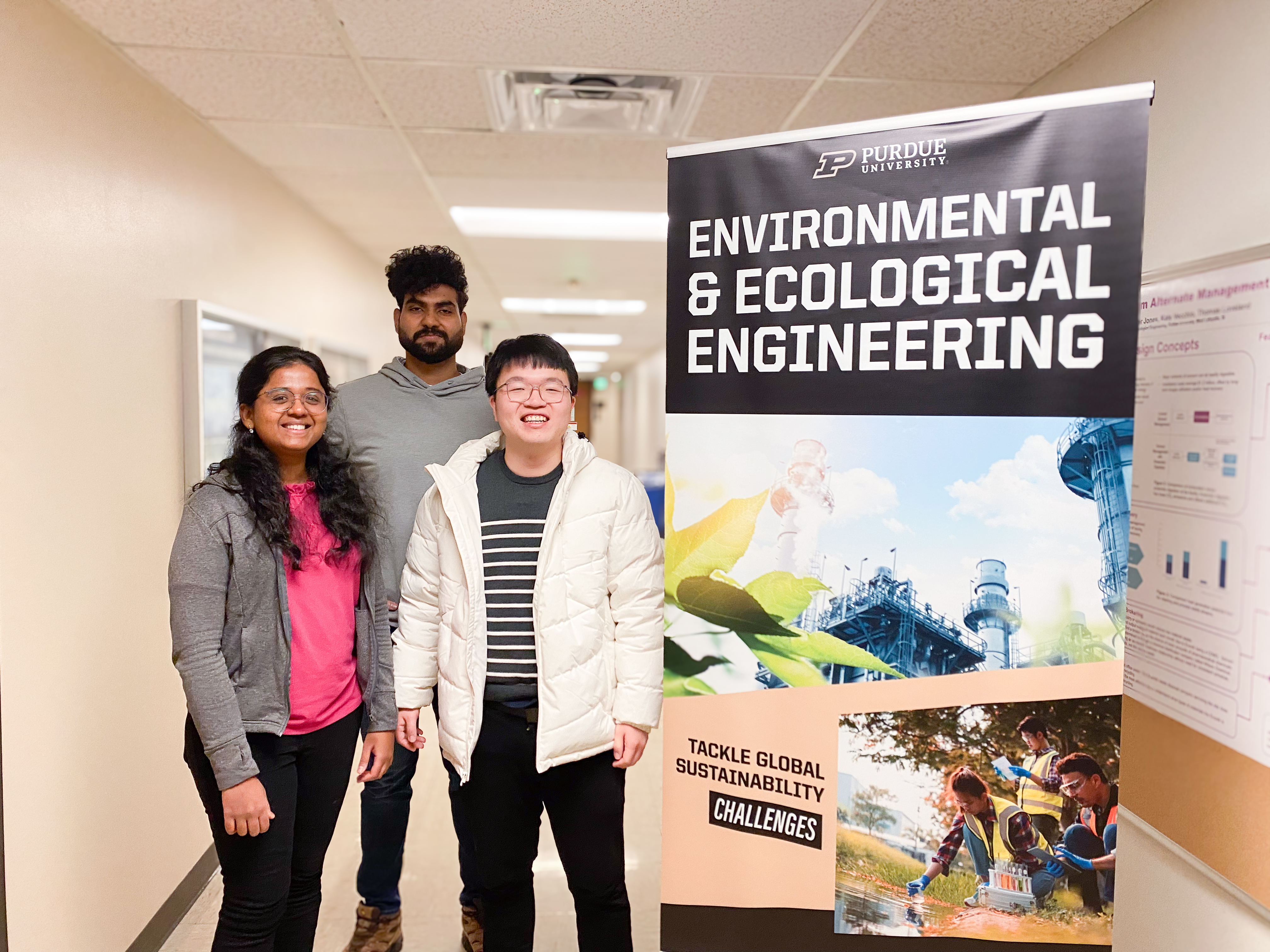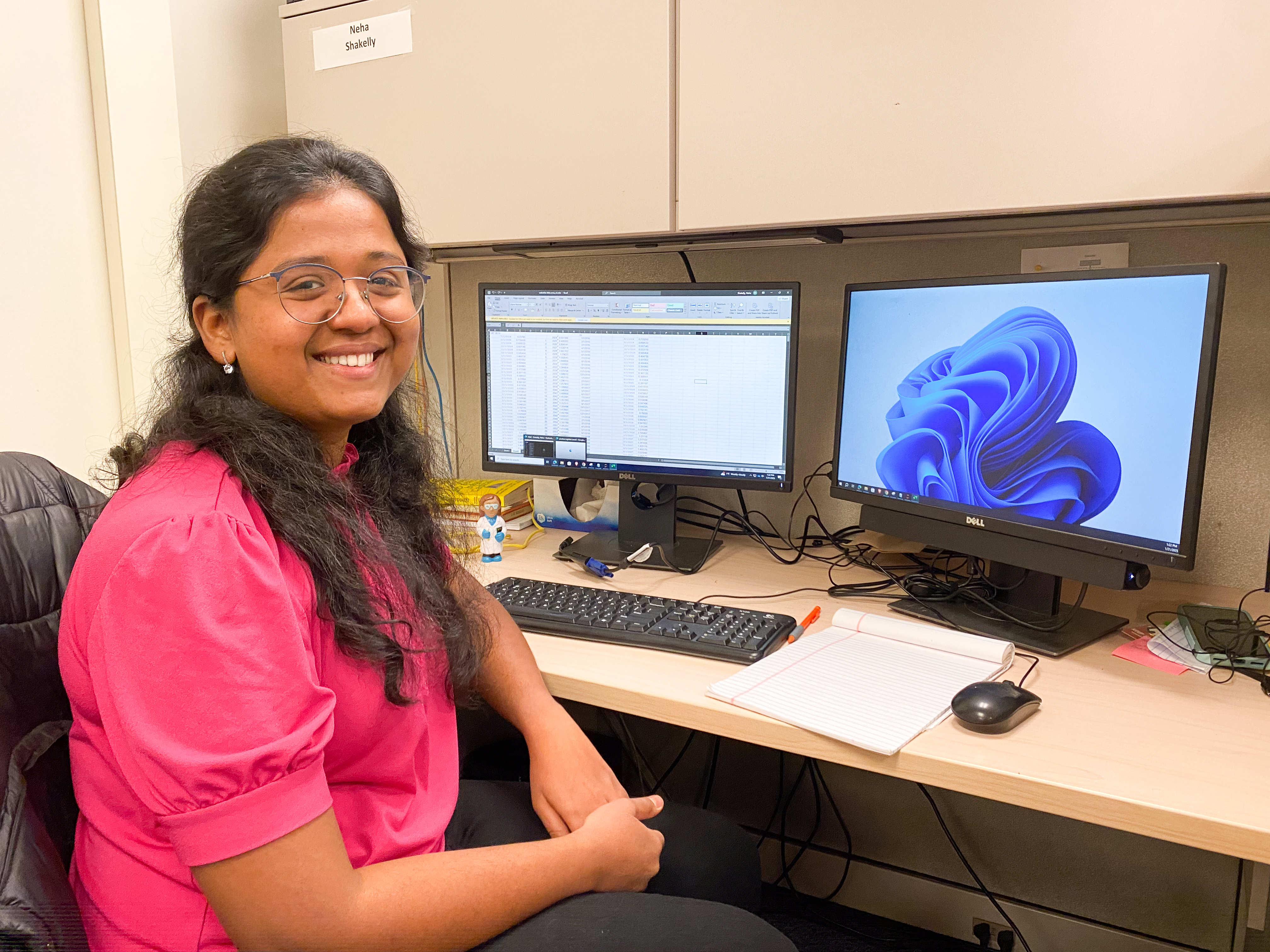Purdue EEE Graduate Students Win DOE Prize for Sustainable E-Scrap Recycling
In 2019, the world discarded over $57 billion dollars’ worth of raw materials in recyclable electronic waste (or e-scrap), a figure projected to rise as our digital footprint expands. To tackle this growing issue, researchers, governments, and companies are racing to develop economical and sustainable recycling systems. Earlier last year, the U.S. Department of Energy (DOE) launched a competition to spur innovation in this field.
This January, Venkat Roy, Neha Shakelly, and Xiaohan Wu, three PhD students from Purdue’s Environmental and Ecological Engineering (EEE) program who formed the team GaCycle, were announced as winners of the Electronics Scrap Recycling Advancement Prize (E-SCRAP). Each of the 10 winning teams received $50,000 in cash and $30,000 in technical assistance from a national laboratory.
“I am grateful for the recognition of the proposal, and I am thrilled about this opportunity to expand my research into bio-recovery of metals, which is a new area for me,” Venkat shares.
The GaCycle team was formed after Xiaohan Wu learned about the contest from Professor Fu Zhao (ME, EEE), who suggested exploring gallium recycling from phone chargers. Xiaohan then approached Venkat and Neha, who brought their expertise in critical materials extraction and techno-economic analysis to the project. Additionally, Professor Xinbo Yang from the University of Utah contributed her expertise in biotechnologies for critical material extraction.

“Recovering critical materials like gallium is crucial for several interconnected reasons,” Neha explains, “Supply chain security is a major factor, as the rapid growth of GaN-based chips in power-efficient applications requires a reliable domestic source of gallium to reduce dependence on foreign supplies.”
Neha also emphasized that recovering gallium from e-waste is far more environmentally friendly than its primary production, which requires energy-intensive mining and processing. With the growing demand for gallium in electronics like 5G phones and power management systems, recycling is becoming increasingly economically viable.

The GaCycle team's proposed process uses bacteria that naturally produce acids and drive reactions to extract gallium from e-waste in a cleaner and more sustainable way.
“We are very excited about replacing the traditional Ga recycling method with a lower-environmental impact process. Using bacteria will not only save energy, but it will significantly lower the cost of recovery. We hope this will be a very impactful innovation for critical materials extraction,” Xiaohan shares.
The innovative work of the GaCycle team represents a significant step forward in the quest for sustainable e-scrap recycling. By harnessing the power of bacteria to recover critical materials like gallium, they address environmental concerns while also enhancing supply chain security and economic feasibility. As e-waste continues to grow globally, solutions like GaCycle’s offer a path toward a cleaner, more sustainable future. The DOE’s recognition through the E-SCRAP competition underscores the importance of this work and its potential to advance sustainable practices in resource recovery.
